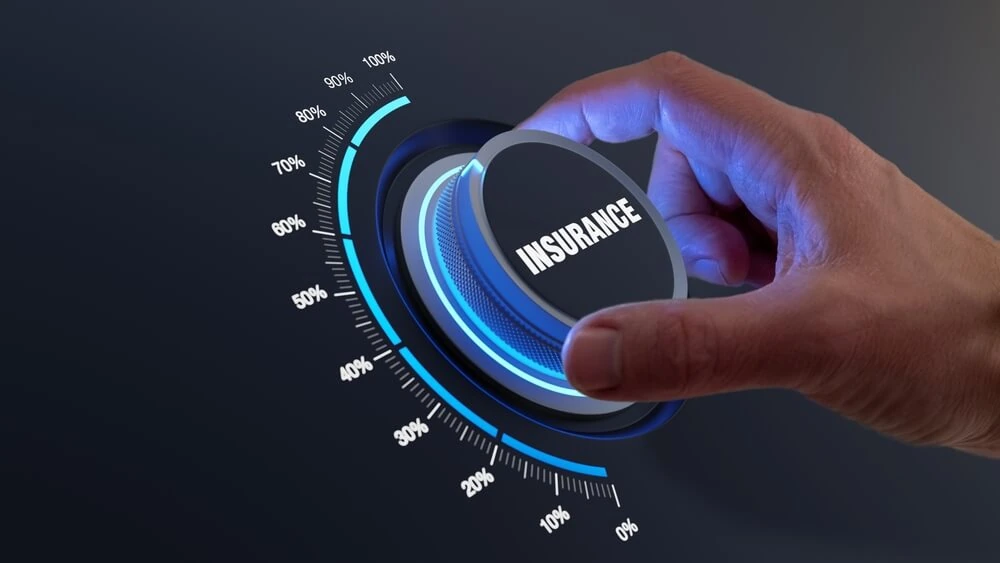
What is full coverage car insurance? It’s a policy that offers far more financial protection than liability, the mandatory minimum level of protection in the State of Georgia.
What happens if you accidentally run into the back end of a truck hauling ripe peaches from a farm in Peach County (appropriately named) to market in Atlanta? If you’ve done damage to the peach truck, your liability insurance will help pay for that (up to your policy limits). But what about your front-end damage?
Here’s another scenario. What if a sudden spring hailstorm comes ripping through while you are at the farmers market waiting for those juicy, ripe peaches to arrive? Now, y’all know this is entirely possible with Georgia’s wild spring storms. Who will pay for all the dents and broken glass your car suffered? Not your liability, that’s for sure.
Riding in to save the day is full coverage insurance.
Read on and learn about the package of benefits you’ll get and how to find cheap full-coverage car insurance in the Peach State.
Understanding Full Coverage Auto Insurance
Georgia, like most U.S. states, is a no-fault car insurance state. That means that in the case of an accident, the insurer of the driver at fault pays all claims — up to coverage limits — for the damages and injuries of all victims. That’s one reason it’s important to understand how car accident fault is determined in Georgia. All claims get paid except, depending on the policy, those of the policyholder who caused the accident.
Uh oh.
Y’all see a problem here? Of course, you do. If all you have is liability coverage, you have cheap auto insurance but potentially high out-of-pocket costs if you’re at fault for an accident. You could have a car you cannot drive until it is repaired – and no money to pay for those repairs.
You also have zero coverage if your vehicle is stolen, vandalized, swept away in floodwaters, a victim of a hailstorm, totaled by a wildlife collision, such as with a Georgia deer, or … you get the idea.
Your liability insurance is for the benefit of others when you’re at fault, not for you. In order to make a claim for your own vehicle or injuries when at fault, you need a full coverage policy.
What Constitutes a Full Coverage Policy?
It doesn’t pay, in many cases, to only carry limited coverage. The twin centerpieces of a full policy — in addition to liability — are comprehensive and collision benefits.
Collision pays to fix your car and injuries up to your coverage limits (more on this later), even if you’re at fault for a road accident. Comprehensive pays for all other nasty ways that your car could be lost, damaged or totaled, including theft, vandalism, wildlife collision, and other issues previously discussed.

Additional Protections Added to Full Coverage
Other benefits you can round out your full coverage package with in Georgia include roadside assistance and uninsured motorist coverage, which can be added to an existing policy at little additional cost.
Roadside protection gives you 24/7 rescue services via a toll-free phone number whenever and wherever you need it. If you’re stranded, an auto tech is on the way with a can of gas, locksmith services, a tire change, jumper start, or a tow to a nearby service center — whatever services you need to get back on the road. It’s a great benefit when you have young drivers in the family, too.
An uninsured policy is for when life really gets unfair. You get hit, your car gets damaged or totaled, and it’s not your fault, but the driver who is responsible is illegally driving without a policy. Or their coverage limits are so low that it won’t begin to cover your loss.
As they say, you can’t get blood from a rock, so you’re not going to get compensated by that uninsured driver, no matter how much you deserve it. But you can get your own car fixed or replaced if it’s hit by an uninsured motorist if you have this protection benefit as a part of your policy.
What Is a Deductible?
Insurers love to throw that buzzword around as though it matters — and it does. Oh boy, does it.
Your deductible is the amount of money you agree to pay out of your own pocketbook or wallet before your insurance company kicks in for the rest of the cost. It’s a sort of balancing act. The higher your deductible, the lower your premium, but the more you’ll pay out of pocket for your covered claims. The lower your deductible, the more you’ll pay upfront in your premium cost, but the less you’ll pay in a claim.
For example, you’ll pay far less in monthly premiums if you have a $1,000 deductible than if you have a $500 deductible. On the other hand, with the first option, your insurer won’t pay start paying claims until you’ve kicked in $1,000. See what’s meant by a balancing act?
What blend of deductible and premiums is right for you? That depends on your budget, driving record, accident history, and other factors. For instance, if you’re a safe and responsible driver who’s never had an at-fault accident, you can save plenty on your auto insurance with a high deductible. On the other hand, if your budget is tight, you might not have $1,500 in the bank to cover your costs for an accident, so you might consider a lower deductible with steadier expected costs.
Ask your auto insurance agent to crunch the numbers for you. Ask for options at different deductible levels to find a policy that aligns perfectly with your budget and coverage preferences.
Making an Informed Decision on Full Coverage
You’ve got some thinking to do. As noted, the State of Georgia insists that you have at least liability insurance. That’s the lowest-cost option, but as illustrated, it leaves you the most exposed financially if you’re ever at fault for an accident. Or you’re a hit-and-run victim or get hit by an uninsured driver, or by wildlife, or … back to that long list of possible and very expensive calamities.
Do some research on car insurance tips to help you save money on full coverage auto coverage. Consider the age and condition of your car, your ability to pay out-of-pocket costs, how much dependable transportation you need, and other factors of importance to you. But there are plenty of upsides to finding cheap full coverage car insurance.
Start by dealing with an independent auto agent. Independent agents don’t just represent a single insurance carrier. They work for multiple brands, so they can find you the best policy at the most competitive rates.
FAQs
Here’s your guide to quick and simple answers to the most common questions regarding full coverage auto insurance in Georgia. Gain insights into the policy details and important factors influencing your decisions for the best protection on the road.
What Is Full Coverage Insurance?
It’s a package of benefits that protects the financial interests of the policyholder — the person who owns the auto policy on the insured vehicle. Those full benefits extend far beyond that of liability, which is the minimum level of auto insurance acceptable in the State of Georgia.
What Does Full Coverage Car Insurance Cover?
Full coverage includes your required liability, plus collision and comprehensive.
Collision benefits cover all costs associated with a collision, up to the Actual Cash Value of the vehicle and minus the deductible. Comprehensive pays ACV minus deductible when no fault can be determined. This might include instances of car theft, collisions with wildlife, vandalism, harsh weather events, or other causes of loss, damage, or destruction of your vehicle.
Other benefits that can be added to your policy include protection against uninsured or underinsured drivers and emergency roadside assistance services, which offer 24/7 toll-free road assistance whenever and wherever you need it.
How Much Does Full Coverage Auto Insurance Cost?
It costs more than liability, which is the legal minimum protection required in Georgia, but it also yields you much more financial protection. Liability, which averages $644 annually, only covers the injuries and property damages of other people when you’re at fault in a collision. If your own car is totaled, liability won’t pay a dime.
The average cost of full coverage in Georgia is $2,718 per year, but this amount will vary greatly, depending on multiple factors, including the make, model, and year of the car, the driving record of the policyholder, the deductible and policy limit, and even such details as your Georgia address. After all, some regions of the state experience more thefts, traffic accidents, or other risks than others.
Your agent will be able to more fully explain the cost of full coverage auto insurance.
How Can I Keep the Cost of Full Coverage Auto Insurance as Low as Possible?
There are several ways to lower your costs, including using discounts (ask what you qualify for), increasing your deductible and lowering your policy limits. Keep in mind these steps could leave you paying more out of pocket if you are involved in an at-fault accident, such as hydroplaning during one of those famous spring rainstorms.
Another tip: Deal with an independent auto agent. Independent agents don’t work for just one insurance provider. Instead, they have contractual relationships with multiple major carriers. That means they can go shopping on your behalf for the best possible deal on cheap full coverage car insurance.